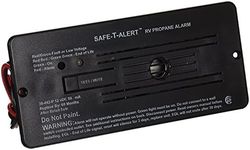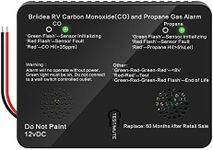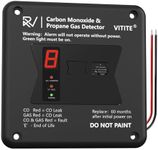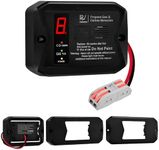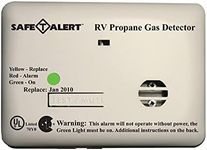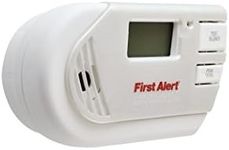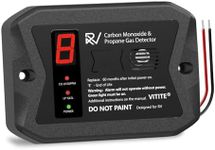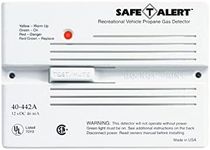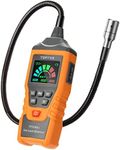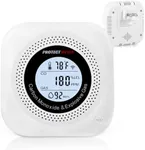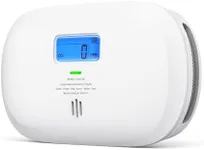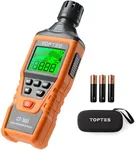Buying Guide for the Best Propane Detectors
When it comes to choosing a propane detector, it's essential to understand the key features and specifications that will ensure your safety and meet your specific needs. Propane detectors are crucial for detecting leaks and preventing potential hazards in homes, RVs, and other spaces where propane is used. By understanding the different specifications, you can make an informed decision and select the best propane detector for your situation.SensitivitySensitivity refers to the detector's ability to detect low levels of propane gas. This is important because early detection of a leak can prevent dangerous situations. Sensitivity is usually measured in parts per million (ppm). Detectors with higher sensitivity can detect smaller amounts of propane, providing an early warning. For general home use, a sensitivity of around 500 ppm is typically sufficient, while more sensitive detectors (100-300 ppm) are better for environments where even a small leak could be hazardous, such as in RVs or near gas appliances.
Power SourceThe power source of a propane detector can affect its reliability and convenience. Detectors can be powered by batteries, hardwired into your home's electrical system, or plugged into an outlet. Battery-powered detectors offer flexibility in placement and continue to work during power outages, but require regular battery changes. Hardwired detectors are more permanent and don't need battery replacements, but may not work during power outages unless they have a battery backup. Plug-in detectors are easy to install and move, but are dependent on the availability of an outlet. Choose a power source that fits your lifestyle and ensures continuous operation.
Alarm TypeThe alarm type refers to how the detector alerts you to the presence of propane. Common alarm types include audible alarms, visual indicators (like flashing lights), and even smart notifications sent to your phone. Audible alarms are crucial for immediate awareness, especially if you are asleep or in another room. Visual indicators can be helpful for those with hearing impairments or in noisy environments. Smart notifications are useful if you want to be alerted even when you are not at home. Consider your household's needs and choose a detector with an alarm type that ensures you will be promptly alerted in case of a leak.
Installation LocationThe installation location of a propane detector is important for effective monitoring. Propane is heavier than air and tends to settle near the floor, so detectors should be installed low to the ground, typically within 6-12 inches of the floor. For RVs, place detectors near propane appliances and sleeping areas. In homes, install detectors in rooms where propane is used, such as kitchens and near gas fireplaces. Ensure the detector is placed in a location where it can effectively monitor for leaks and provide timely alerts.
CertificationCertification indicates that the propane detector meets certain safety and performance standards. Look for detectors that are certified by recognized organizations such as Underwriters Laboratories (UL) or the Canadian Standards Association (CSA). These certifications ensure that the detector has been tested for reliability and effectiveness. Choosing a certified detector provides peace of mind that the product meets high safety standards and will perform as expected in detecting propane leaks.

